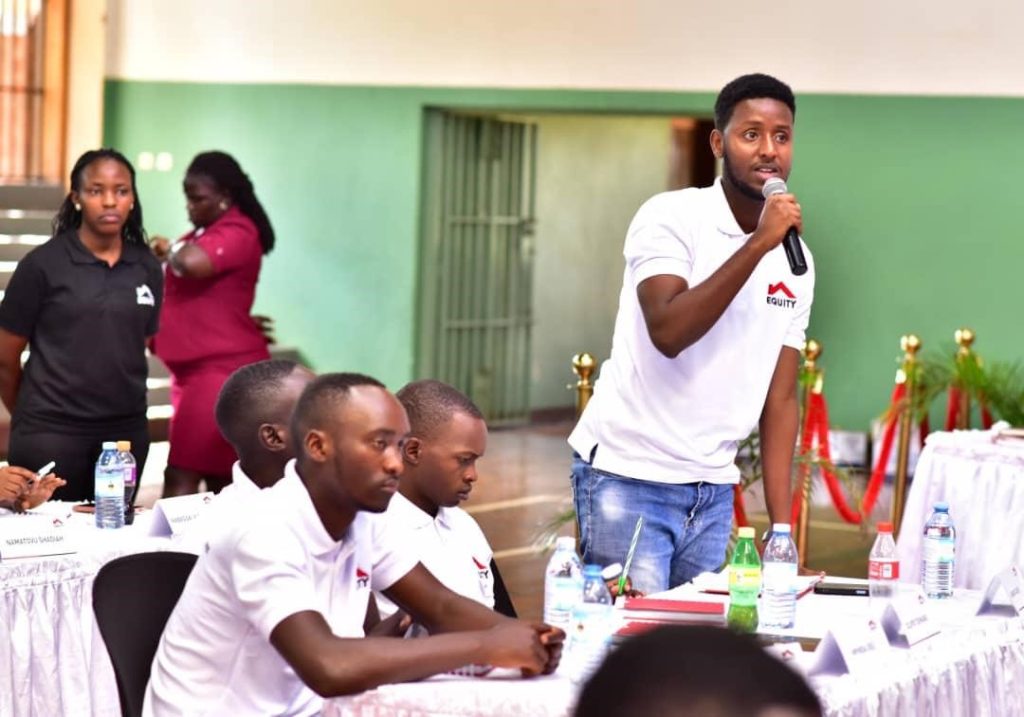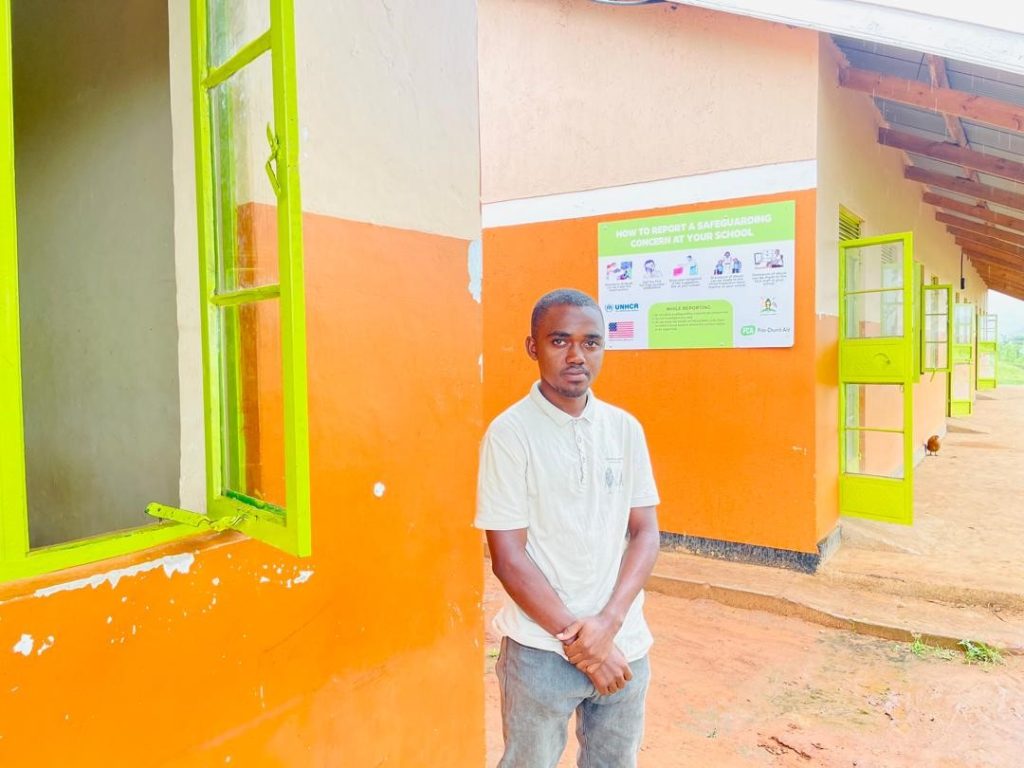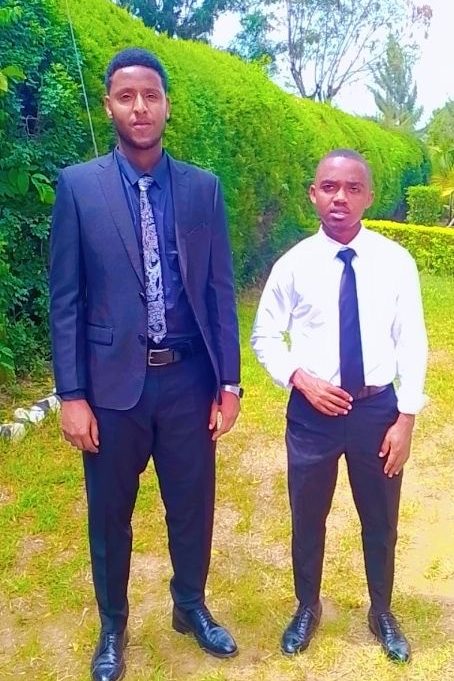Despite top grades, refugees face barriers to university
University education is not only important for refugees but strengthens their adopted communities. When refugees get to go to university, they acquire skills that allow them to support themselves and earn a living, thereby contributing to society.
WHEN REFUGEES join universities, they bring diverse perspectives and experiences that enrich the learning environment for all students. This diversity helps everyone’s understanding of the world and fosters greater empathy among students. By supporting refugee access to university education, FCA contributes to creating a more connected and compassionate world.
Currently, many organisations offer scholarships to outstanding students to help them access university education. While these are aligned with what FCA advocates for, it’s important to recognise that refugees often face additional barriers. Many refugees lack access to basic tools like laptops, consistent internet, and reliable electricity. By the time they learn about these opportunities, others who already have these resources may have taken advantage of them. That puts refugees at a disadvantage when it comes to accessing educational opportunities.
FCA recognises the incredible potential of refugees residing in settlements like Nakivale in Southwest Uganda, home to 185,990 individuals from Somalia, Rwanda, DR Congo, South Sudan, and Eritrea. A significant 59% of the population (source: UNCHR) are of school-going age, underscoring a burgeoning need for educational support.
Despite high aspirations among these youth, only a fraction has access to higher education. Our findings, based on data from UNCHR and the government of Uganda at the end of 2023, indicate that while 80% of Nakivale’s residents wish to continue their educational journeys, a mere 2% have the means to pursue university degrees. The gap between aspiration and reality is considerable, representing a critical barrier that must be addressed.
Despite hard work, refugee students can’t access higher education
Students like Arafat Abdi Ahmed from Somalia and Ntezirizaza David from Rwanda represent resilience and determination. Both have excelled in their national examinations and encounter limitations to further their education at the university level. Arafat dreams of becoming an engineer, while David aims to pursue a career in statistics. Their stories bear the harsh truth that, despite their hard work and excellence in all levels of secondary school, accessing higher education remains a challenge due to limited scholarship opportunities.

‘A refugee has no business in a university’
Arafat’s story started during a time of turmoil in his home country. Fleeing Somalia with his family to seek refuge in Uganda, he found himself at Nakivale Secondary School in one of the oldest refugee settlements in the country. Despite the challenges he faced, Arafat excelled academically, scoring a first grade in his Uganda Certificate of Education (UCE) and also achieving top grades in his Uganda Advanced Certificate of Education (UACE). His dream of studying physics and becoming an engineer fueled his determination to succeed. With the support of scholarships from UNHCR and partner organisations, he was able to pursue his education at Mbarara High School.
Now that Arafat is nearing his dream, he yearns for the opportunity to further his education at the university level. Specifically, he wishes to turn his engineering aspirations into a reality. “I want to inspire my siblings and everyone who said I should have concentrated on manual labour instead of wasting time in academics.” Arafat also wants to challenge the stereotype in the settlement that goes “a refugee has no business in a university.”

Government scholarships restricted to nationals
David also fled his homeland in Rwanda with his family to seek refuge in Uganda. Despite the challenges he faced, David remained steadfast in his chase for education. Like Arafat, he also excelled in all his secondary and advanced exams. His childhood dream is to become a statistician.
“I hope I have the opportunity to study statistics at the university,” David tells us shyly. However, as a refugee, David faces uncertainty regarding access to government scholarships, a privilege only given to nationals. This fuels his worry about the high university costs. Nonetheless, David remains determined to create a better future for himself and his community.
“If given a scholarship, I am surely going to make the best statistician of our generation. Try me!” he erupts with sudden confidence.
“This is something I have wanted since childhood and if anyone out there can help me, I will not stop until I fulfill this promise which I made to myself. I am determined to make a better future for myself and my community through education.”
David is currently helping learners of Rubondo SS, Nakivale SS, Citizen High School and Mbarara High School through discussions for subjects like Mathematics and Economics. He is also volunteering via UNICEF’s Upshift programme, which empowers young people to identify challenges in their communities and create entrepreneurial solutions to them. David is also engaged in activities for the youth empowerment through skills equipment like making crafts, making soap.
FCA equips refugees with tools for further education

FCA actively endeavours to promote education by facilitating access to higher institutions through engagements with institutions, individual donors, and joint advocacy with other organisations. We remain committed to breaking down these educational barriers through initiatives such as providing scholarships, psychosocial support and ongoing teacher training. We also build educational facilities, which include laboratories, high quality hygiene facilities, dormitories and teacher accommodation among other facilities. Above all, FCA strives to equip refugees with the tools necessary for success.
Additionally, our complementary pathways project in partnership with UNHCR has a ‘Education Pathways’ programme, which offers refugees opportunities to access scholarships in third countries, further expanding their educational prospects.
The narratives of Arafat and David are not just individual tales of aspiration and hurdles; they mirror a widespread crisis among refugee communities — a dire shortage of university scholarships. The continuation of their education journey is pivotal not just for them as individuals, but for the socio-economic development of their communities and beyond.
It is crucial that more stakeholders join with organisations like FCA to expand the availability of university scholarships for refugees. Investing in higher education for refugees is not only a fulfillment of their rights but also a strategic investment in global development. Educated individuals like Arafat and David are poised to become leaders and change-makers who can influence positive transformations in their communities and the global society at large.
Text By Kadlah Nabakembo
Pictures By Briphin Ampurire